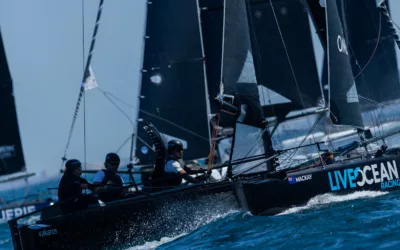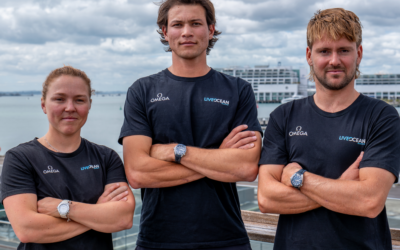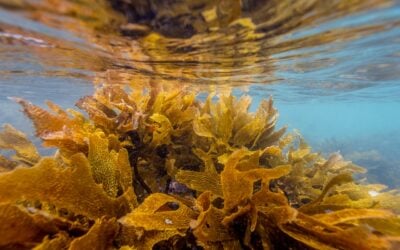Wednesday 29 June, Lisbon –
As World Leaders, and leaders from the scientific community and international NGO’s meet this week at the UN Ocean Conference (UNOC), we talk to Sally Paterson from Live Ocean Foundation who is there with founders Peter Burling and Blair Tuke, about the first half of the conference.
- What is the UN Ocean Conference?
The United Nations Ocean conference starts this week in Lisbon, Portugal, hosted by the governments of Portugal and Kenya. It is only the second one ever – the first was held back in 2017. It’s a gathering of the who’s who of the climate, ocean and policy communities, including governments, policy makers, international NGO’s, celebrities and Heads of State. There are many events, allowing people to share ideas, experiences, perspectives and knowledge across borders.
- What are the key issues being discussed?
The conference’s focus is on conserving and sustainably managing the world’s ocean so the topics range from including the ocean in country’s Nationally Determined Contributions (NDC’s) as part of their Paris Agreement commitments, to green shipping through to marine protection. Judging by the amount of people who were turned away because the session was so packed, seabed mining is the big issue of the conference and an announcement by Palau and Fiji of a moratorium on seabed mining was welcomed with a standing ovation from the attendees. Māori party co-leader Debbie Ngarewa-Packer spoke alongside Sylvia Earle, The PM of Fiji and the President of Palau.
- What have been the highlights so far?
For Live Ocean, it’s been a huge highlight having the opportunity to present a declaration by leading sportspeople from around the country and globe to UN Secretary General’s Special Envoy for the Ocean, Peter Thomson. His mantra is there is ‘no healthy planet without a healthy ocean and the health of the ocean is measurably in decline’. He also commented on how the important role the sailing and ocean sports community plays in ocean health but also how pleased he was pleased to see the rowers and skiiers in there. All water is connected from the mountains to sea.
- Is enough being done?
Hearing Secretary Kerry speak was a real honour with his role in climate but also as a global ocean champion. He was very clear that we need to move much faster as what is being accrued today, is still accruing and will cause more damage tomorrow. It makes both economic and moral sense to move now. There is an urgent need to shed the pervasive ‘business as usual’ attitude.
- Where is New Zealand in this global conversation?
A huge number of countries are making measurable progress and bold committments. New Zealand seems to be on life support system when it comes to our we conserve and protect the ocean space we have responsbility for. We haven’t progressed any marine protection since the last UNOC five years ago, we are the only country in the South Pacific that still allows bottom trawling and generally the ocean remains hugely underpriortised given the health of it sustains us all.
- Where does the ocean sit in the climate conversation?
The message around ocean risk being climate risk is loud and clear. There is an urgent need to reduce emissions to 1.5 degrees to avoid catastrophic damage to the ocean through acidification as well as doubling efforts into research in blue carbon. Many countries around the world are already including blue carbon as part of their NDCs.
- Is there cause for optimism? There is a strong message of hope, because we know what to do. We just need to do it.
- What can people do to help? All impacts on the ocean are caused by humans and the answers of course lie with us. Individually, we need to understand what we do on land effects the ocean and also think hard about what and how we take from it and what we put into it. As a country we need to priortise the health of the moana and move quickly and boldly.



